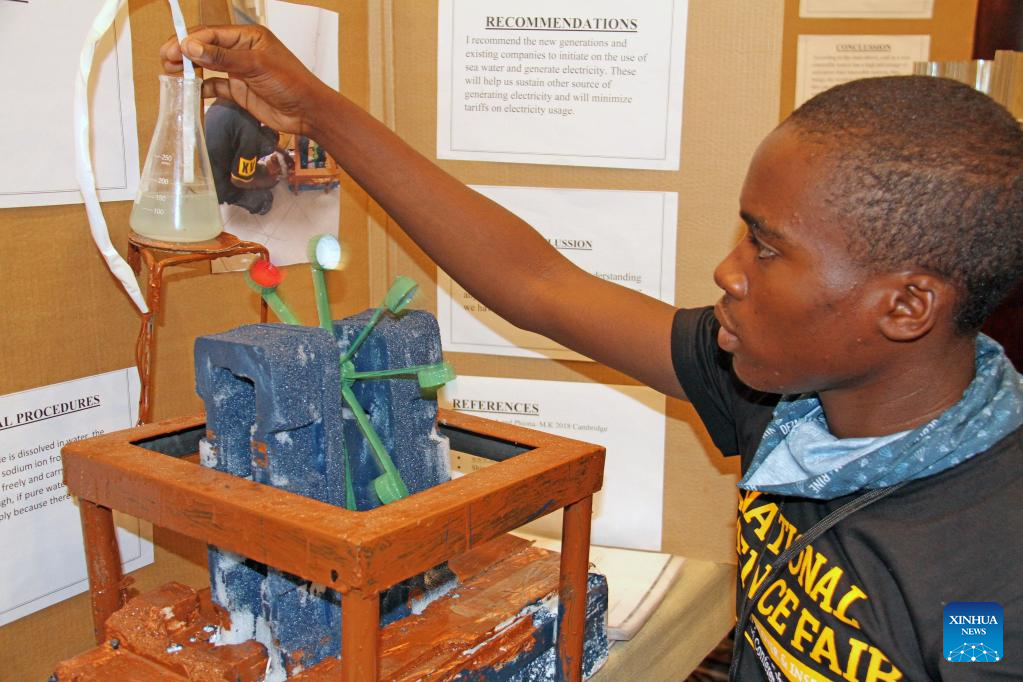
A student showcases his model for electricity generation during a science fair in Windhoek, Namibia, Feb. 1, 2023. (Photo by Musa Kaseke/Xinhua)
WINDHOEK, Feb. 1 (Xinhua) -- After a long hiatus and no feature on Namibia's school calendar due to financial strain since 2016 and subsequently the COVID-19 pandemic, the southwestern African country held its National Science Fair, where budding scientists converged to showcase their talent.
The National Science Fair is an annual event where the best science projects for all 14 Namibian Regions compete against each other. In total, there were 121 projects at the fair, including 54 senior secondary school projects that consisted of investigations, innovation projects as well as models, Secondary Head Judge Connie Willemse told Xinhua Wednesday.
"This year what the kids came up with is quite astounding and we are extremely impressed with the level and the quality of the presentations that we viewed," she said.
Thirteen-year-old Bradley Vrieslaar could not contain his excitement as he paced back and forth to catch the attention of the camera so that he could showcase his project which focused on organic manure for gardening.
"The fertilizer I use comes from all farm animals and I am enjoying this science fair and believe science can take you anywhere," he said.
While most of the project models were made out of recycled materials like plastic, and cardboard boxes, some students presented innovative projects that sought to tackle problems in their communities, many of which are water problems, considering Namibia's arid situation and power generation-related issues.
"My project is that of a desalination plant," a student named Maria from the Erongo region said. The Erongo region is one of the 14 regions of Namibia and the capital is the coastal town of Swakopmund where seawater is abundant.
Like Maria who seeks to provide water for her community, another student, Costal Shimbombo, said his project mainly focused on the use of seawater to generate electricity.
"The chemical reaction in a salt solution, in the end, will produce electricity and in the future it can be incorporated into the national grid, considering that the Southern Africa power pool is struggling with constant power cuts," he said.
Shimbombo found the science fair interesting because he managed to learn a lot from the various competitors, and he believes the platforms prepare the youth for the future.
While some delved into the physical aspect of science, some focused more on the theoretical side of it, focusing on photosynthesis in food production, and the effects of changing the medium on the period oscillation, while others looked at the human anatomy like what is the impact of eye color on peripheral vision.
Speaking to Xinhua, Nhlanhla Lupahla, general manager for Research, Science, Technology and Innovation Coordination and Support, said the fair aims to stimulate interest in young people in science, maths, and engineering to provide an educational experience through participation in scientific research and give public recognition to learners for the work that they have done.
"We would emulate in the future reaching the stage where the projects become breakthroughs if they are nurtured beyond their current level to put them through as innovations for the future," he said.
The fair began Monday and is scheduled to conclude Friday with the top cream of the crop expected to bag various prizes.
The event was organized by organizations including the Ministry of Education, Arts and Culture, the National Commission on Research and Science and Technology. ■
